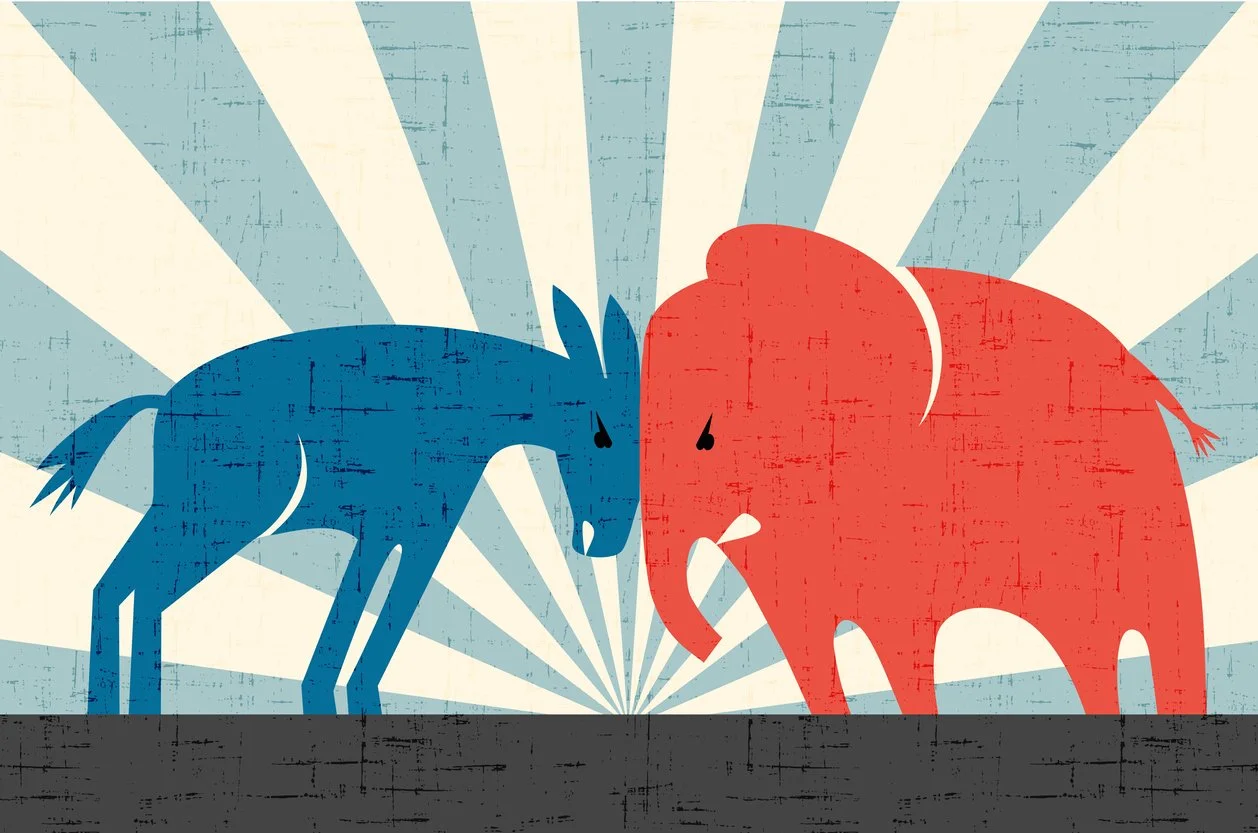Polarization in Education at Riverdale
Since the pandemic, political polarization has drastically increased across all aspects of American life. With bipartisan consensus becoming rarer, Congress has failed to make tangible progress on major issues facing the American public. Beyond politics, this polarization has manifested itself in the media. In a public discourse in which even objective journalism intends to impose a specific ideology (as demonstrated by a Pew Research Center study in 2014), it often seems that Americans are living in different realities dependent on their news sources. Thoughtful discourse seems to be quickly diminishing as Americans blindly trust certain sources while vehemently rejecting others.
Fortunately, Riverdale is a school that encourages and prizes critical thinking. English and history classes especially, are designed such that students are forced to analytically examine biases and motivations, allowing them to examine history and writing from a holistic perspective. This sharpens critical thinking skills, which are vital to see through the biases of polarized media so that we can craft well-informed opinions to “change our world for the good,” as Riverdale’s mission states.
Despite this focus on critical thinking, why does it still often seem as though polarization permeates our classes, conversations, and friendships? One lens through which we can answer this question is by examining how education has become increasingly politicized over the last two years. As the president of the American Federation of Teachers told NBC news, Randi Weingarten described, “Normally, our kids have been off-limits. Now, they are the battlefield.”
To begin addressing this controversial topic, it seems necessary to define the purpose of education. According to the U.S. Department of Education, the purpose of education is “to promote student achievement and preparedness for global competitiveness by fostering educational excellence and ensuring equal access.” Working off of this rather vague definition, it seems that polarization exists because people disagree on how best to promote “preparedness for global competitiveness.” Politicians on both the left, in states like New York, and the right, in states like Florida, have pushed instituted controversial education practices over near-unanimous opposition from the other side. Examples include bills that emphasize teaching “critical race theory” in liberal states, and bills like the “Parental Rights in Education” (Dubbed the “Don’t Say Gay”) bill in Florida.
Researcher Jeffrey Sachs reported that since January 2021, 35 states have introduced 137 bills that restrict teaching topics regarding race, American politics and history, and queerness. In response to such bills in Florida, teachers have expressed that many of these restrictions place them in a precarious position from which they must carefully address, or sometimes ignore, vital topics that have shaped the contemporary United States. On the other hand, parents and scholars have criticized many states for allowing classes and curriculums that present a politicized vision of American history. Conflicts in New York City and Connecticut have brought these politically biased education methods to the forefront of media attention.
The theme throughout all of these bills, on both sides of the aisle, is their desire to turn our schools into political echo chambers; politicians actively promote both media and education that inflames their voting base and supports their agendas. Thus, they have actively encouraged an educational culture that encourages narrative over fact, at the expense of our children.
With this general understanding of polarization in education, we can examine how polarization has manifested in the Riverdale community. After conducting interviews with several students across the high school, most of whom decided not to share their names, it seems that although Riverdale encourages open discourse, many students are still afraid to share their opinions in the school classroom. Many expressed fear that writing an essay or arguing opinions contrary to the majority will result in judgment from their peers or teachers. So, they have learned to water down or change their opinions to conform to the narrative of a class. This fear is damaging to open discourse, and thus discourages the critical thought that Riverdale strives to encourage. Despite this fear, students believe that Riverdale is far less polarized than the country. Teachers genuinely promote the critical assessment and questioning of all different worldviews and try to incorporate different perspectives in classrooms. These teaching methods, along with the publishing of The Statement on Campus Discourse, have worked to shield the Riverdale community from much of the polarization we are seeing elsewhere.
With polarization increasing across the country, it would be naive to assume that Riverdale is immune to its negative effects. However, with teachers and administrators consciously working to ensure that open discourse and critical thought prevail, students seem hopeful that we can combat the spread of polarization and create spaces where students are no longer afraid of judgment.


